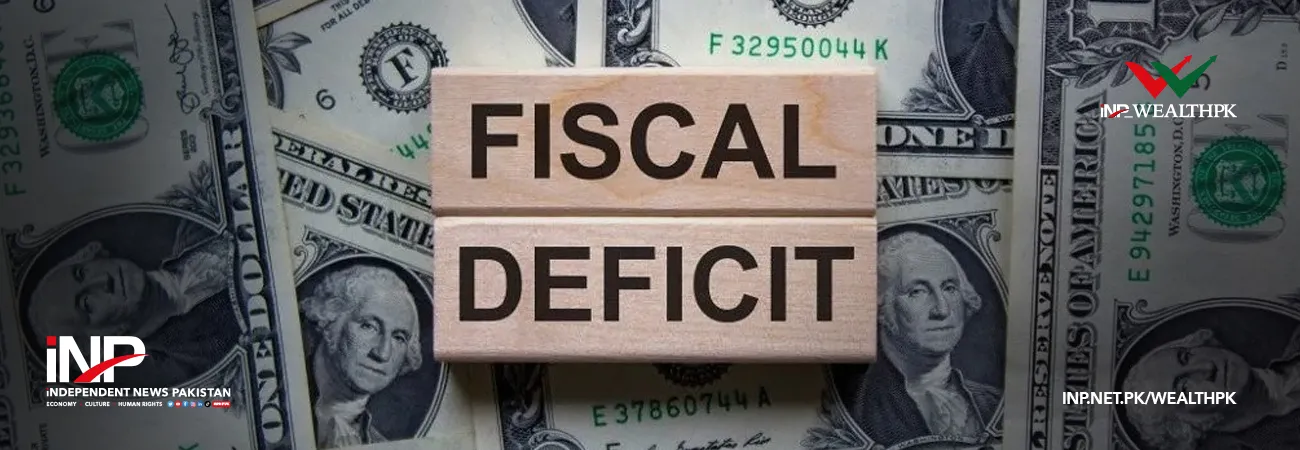INP-WealthPk
Qudsia Bano
In the face of a challenging economic landscape, Pakistan is grappling with a fiscal deficit projected at 7.5% of GDP, surpassing the targeted 6.5%. The Federal Board of Revenue (FBR) is striving to collect PKR 9.4 trillion but faces the likelihood of falling short of its target. The high budget deficit, elevated borrowing costs, and likely lower revenue collection have created a pressing need for urgent reforms. This economic predicament has prompted a call for essential reforms, which include the enhancement of tax collection efficiency, the broadening of the tax base, and the implementation of comprehensive tax reforms. It is imperative to address the root causes of the fiscal deficit, with a focus on reducing borrowing costs and increasing revenue generation. Furthermore, the challenge extends to balancing the budget, emphasizing development spending, and tackling losses incurred by state-owned enterprises (SOEs). Achieving fiscal sustainability and economic stability hinges on a strategic approach to managing public finances and fostering a conducive environment for economic growth. Talking to WealthPK, Gulzar Siddique, an economist at KASB Securities, said, "The current economic predicament facing Pakistan demands swift and comprehensive reforms to address the underlying issues contributing to the fiscal deficit.
To enhance tax collection efficiency, the government should focus on simplifying tax structures, closing loopholes, and utilizing technology for better enforcement." He said, "Broadening the tax base is crucial, and efforts should be made to bring informal sectors into the tax net. Implementing comprehensive tax reforms, such as reviewing tax rates and introducing progressive taxation, can contribute to a more sustainable fiscal environment." The economist said tackling the root causes of the fiscal deficit requires a multifaceted approach. "Reducing borrowing costs is imperative, and the government should explore avenues to attract foreign direct investment, diversify revenue sources, and optimize debt management strategies," he opined. "Development spending must be targeted towards projects with high economic returns, ensuring a balanced budget and maximizing the impact on economic growth. Addressing losses in SOEs necessitates a rigorous assessment of their efficiency and governance structures, possibly involving privatization or strategic partnerships," he added. Hamid Haroon, an economist at the Federation of Pakistan Chambers of Commerce & Industry, said Pakistan is currently at a critical juncture and the urgency for fiscal reforms cannot be ignored.
"The high fiscal deficit, coupled with elevated borrowing costs, poses a significant threat to the country's economic stability. To effectively navigate these challenges, the government must adopt a pragmatic and strategic approach. Enhancing tax collection efficiency is paramount. Simultaneously, broadening the tax base should involve incentivizing the formalization of the informal sector and aligning tax policies with economic goals," he added. Hamid said that the urgency for reforms is underscored by the potential consequences of failing to address these issues. "A sustained fiscal deficit can lead to increased reliance on borrowing, potentially exacerbating the debt burden and hindering economic development. Moreover, insufficient revenue collection constrains the government's ability to fund essential services and infrastructure projects," he added. The success of such reforms is pivotal not only for the immediate economic challenges but also for positioning Pakistan on a trajectory of sustained growth. As the government grapples with these issues, the collective efforts toward implementing effective reforms will be crucial in navigating the current economic challenges and fostering a resilient and thriving economy in the longer run.
inpCredit: INP-WealthPk













